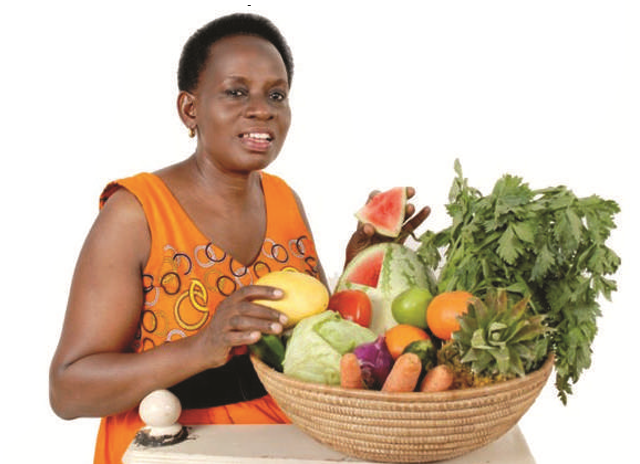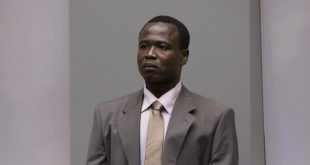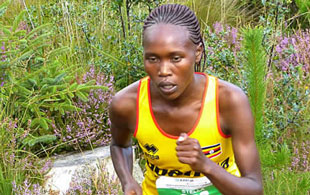
Two top practitioners speak to The Independent about their fears and dream
Andrew S. Kaggwa
Imagine a place where you can go for weight management, management of lifestyle diseases, nutritional support, and guidance and counseling on diet. Now on that list add herbal decoctions, distillates, ointments, creams, and lotions. Finally on your list add massage, manicure, and pedicure, transcendental meditation and exercises, and training modules in herbal medicine preparation and balanced meal preparation.
That is the almost complete list of facilities and services that renowned Ugandan herbal medicine expert, Dr. Grace Nambatya Kyeyune, says will be found in what she calls a `holistic health centre’.
“I visualise a situation where a patient accesses a center to address physical, social, mental, spiritual and financial support,” she explains.
She says such centers would have identified practitioners with a diversity of skills.
Nambatya’s vision of the future of herbal medicine in Uganda is perhaps driven by the huge leap that area of human medicine has made in recent years.
Though there are no official figures, anecdotal information shows Ugandans are use herbal medicine more than before.
Previously, it used to be enthusiasts like Annet Namusoke, a mother of four in Nakasajja Mukono District, who would proudly announce how when her children now get cough she boils leaves and bark of different herbs and uses them as cough syrup.
“I learnt the different herbs from my mother who used to prepare them for us when we were still young to cure cough,” she says. Back then, many people would look at her habit negatively.
Gaining popularity
Today, there are even registered clinics in Kampala prescribing purely herbal medicine.
A walk around any street in any major town in Uganda shows several clinics proclaiming herbal remedies.
There are popular practitioners like Dr. Aisha Nakasujja and Dr. Kizito Mulwana who run big multi-shop establishments.
Even the World Health Organization (WHO) recognises the safe use of herbal medicine and categorises it into three; traditional medicine, complementary alternative medicine (CAM), and herbal medicine.
Under herbal medicines, WHO includes herbs, herbal materials, herbal preparations and finished herbal products that contain as active ingredients parts of plants, or other plant materials, or combinations. It defines herbs as crude plant material such as leaves, flowers, fruit, seed, stems, wood, bark, roots, rhizomes or other plant parts, which may be entire, fragmented or powdered. There are also herbal materials including herbs, fresh juices, gums, fixed oils, essential oils, resins and dry powders of herbs.
It says these materials may be processed by various local procedures, such as steaming, roasting, or stir-baking with honey, alcoholic beverages or other materials.
Dr. Nambatya, a PhD holder in Medicinal Chemistry from Loughborough University of Science and Technology in Leicestershire, Midlands, UK, is already putting most of these in her vision for the future of herbal medicine.
As head of the government Natural Chemotherapeutics Research Laboratory, she leads a team that provides technical help to the regulatory body, the National Drug Authority.
Her lab supports research into herbal products as highlighted in the mandate to provide scientific evidence for their usefulness in terms of efficacy and safety.
As a researcher playing a regulatory role, Nambatya says she has initiated a `Health Knowledge Exchange Platform’ which enables people from all walks of life to meet and dialogue on health issues regarding herbal treatment therapies and ways of preparing them. This platform is to be rolled out into the communities into ‘wellness or age well homes’ where people can access holistic health.
“I am already running one and the response from the public is very encouraging. It is known as “Natural Health Care Consultations,” says Nambatya.
But Nambatya is just one of many people embracing the future of herbal medicine in Uganda.
Christine Anyumel is one of them.
She is the founder of Healing Together Naturally, a new and vibrant group of herbal medicine enthusiasts. The group’s brand is the frank language used on its Facebook page by the largely women subscribers.
“Dear members I have a rash on my private parts, what natural treatment can I use to cure it?” one of them recently posted.
Such a post is usually followed by many replies, sometimes up to 500, by 140,000 and more members of the page including from neighboring countries of Kenya, Rwanda and South Sudan but also as far away as Botswana, Malawi, South Africa, US, Europe and Asia. Occasionally, the administrators of her page chip in to offer advice where they feel some members are misleading others.
The discussions focus mainly on health issues affecting women like reproductive health, weight loss, and fibroids. Many contributors hide their identity behind names like Ivory, Ashley, Sylvia, and May.
Anyumel does not hide her identity. The slender dark woman, who appears to be in her mid-thirties, runs the page and quasi-herbal medicine clinic from a small two-storied office that looks more like a lawyer’s chambers than a medical clinic in Ntinda, a Kampala city suburb. At the reception one usually might find black polyethylene bags full of fresh green herbs perhaps waiting to be collected by clients. Often also one might find Asians who appear to be clients and show Anyumel’s multiracial clientele. Her office table is filled with plastic vials and containers of herbal medicine.
Anyumel, whom members call Tina, has training in herbal and nutrition therapy. She says, however, she got the idea of forming her clinic and web page when she had her own reproductive health problems cured through herbal medicine. Anyumel says she had failed to get proper reproductive treatment in major hospitals and ventured into herbal when she was advised to visit a fertility centre in Kampala for an expensive In Vitro Fertilisation (IVF) procedure.
 The Independent Uganda: You get the Truth we Pay the Price
The Independent Uganda: You get the Truth we Pay the Price



